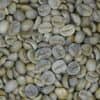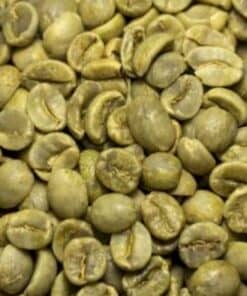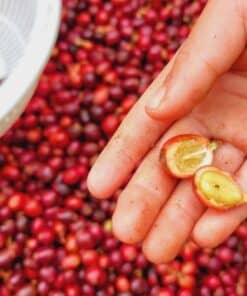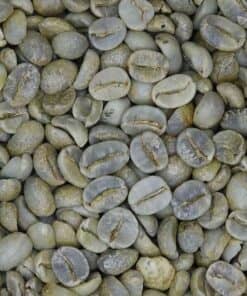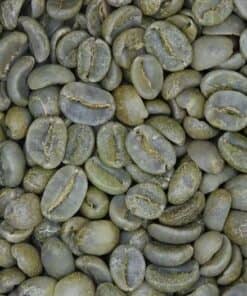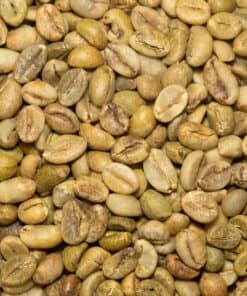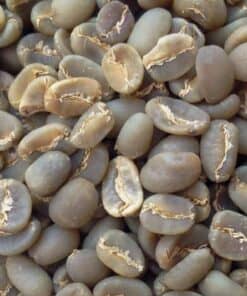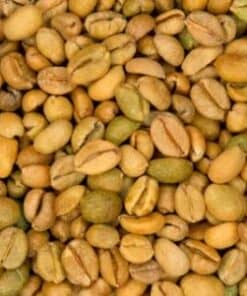Arabica Green Coffee (Fully Washed) – Grade 1 (S16, S18)
Variety: Arabica
Region: Cau Dat, Lam Dong
Elevation: 1350m
Processing: Wet Processing (Fully-Washed)
Ripe Rate: 98-99%
Moisture: 12.5%
Foreign Matter: 0.1%
Black: 0.1%
Broken: 0.1%
Rate on Sieve: 90%
Bean size (Sieve): S18, S16
Capacity: 6000 tons/year
Arabica Green Coffee (Fully Washed) – Grade 1 (S16, S18)

Arabica has an intense aroma, an ethereal sour taste, a slight bitterness, and a sweet aftertaste, often described as the fresh taste of early morning. Once you try Vietnamese Arabica, the taste is unforgettable.
At Baolong Farmfresh, we choose wet-processed green Arabica. When done correctly, this method helps ensure the beans’ intrinsic quality, resulting in uniform green coffee with no defects that negatively impact taste.
Coffee produced by wet processing always has better quality and higher commercial value.
1. Arabica Green Coffee – The Most Popular Coffee in the World
Arabica is the most popular coffee globally. In Vietnam, Arabica is known for its delicious taste, rich flavor, and exceptional quality. To get the best product, Baolong Farmfresh carefully selects and processes the beans to preserve their natural flavor.
Arabica has a strong aroma, light acidity, a bit of bitterness, and a sweet aftertaste. It leaves an impression on drinkers. Besides the taste, Arabica is also good for health as it has lower caffeine, making it suitable for the elderly and people with heart problems. It doesn’t cause insomnia, slows aging, and is particularly good for women.
2. How to Produce Arabica Fully Washed Processing in Vietnam
Wet processing is more complex than dry processing and is commonly used for Arabica coffee. The main feature of this method is removing the flesh between the beans and skin before drying.
This method requires specialized equipment and consumes a significant amount of water, so it must be done carefully to protect the environment.
Steps of the Wet Processing Method:
- Step 1: Cleaning impurities. After harvest, some unripe, wormed, or dry cherries can reduce coffee quality. Small twigs, leaves, rocks, and other impurities are often mixed in. Preliminary processing and grading are essential and typically done right after harvest. The coffee cherries are washed in running water, and the ripe ones are sorted.
- Step 2: Pulping and removal of skin and mucilage. After sorting, the cherries are pulped, separating the skin, pulp, mucilage, and the coffee beans. This crucial step distinguishes wet from dry processing.
- Step 3: Fermentation. The pulp and mucilage around the coffee beans need to be removed. This process takes 24-36 hours, depending on the thickness and temperature of the mucilage. After fermentation, the mucilage becomes loose and can be washed away.
- Step 4: Drying. After fermentation, coffee beans are washed and transferred to the drying stage. The moisture content should be reduced to 12.5%. Coffee beans can be sun-dried or machine-dried, with drying times varying between 8-10 days, depending on the weather.
- Step 5: Storage. After drying, the coffee is stored, milled into green coffee, and then prepared for export or roasting.
3. Where to Buy Vietnam Arabica?
Baolong Farmfresh, with years of experience in production and quality management, is proud to be a reasonably priced supplier of high-quality, stable wet-processed Arabica green coffee.
By controlling the process from collection to distribution, Baolong Farmfresh optimizes quality control, providing customers with high-quality products at excellent prices.
While there are newer methods of processing Arabica, Vietnam’s wet-processed Arabica remains the most popular due to its stability in taste and reasonable pricing.
Certifications:
- Rainforest Alliance Certified
- Fairtrade Certified
- USDA Certified
Discover the Alluring Flavors of Vietnamese Arabica Coffee
Vietnamese Arabica coffee, especially from Cau Dat – Da Lat, has a refined and complex taste that offers an exceptional experience for coffee lovers.
The cool climate and fertile soil of Cau Dat – Da Lat help Arabica beans develop perfectly. The coffee has notes of syrup, fresh fruits, honey, and toasted bread, creating a memorable experience for your senses.
Cau Dat, located 1500 meters above sea level, has an ideal climate for growing Arabica coffee. The area is pest-resistant, allowing the plants to thrive naturally. Each hectare yields 18-20 tons of fresh cherries, equivalent to 4 tons of beans, significantly outperforming other regions.
Cau Dat – Da Lat: A Premier Arabica Coffee Growing Region
With a total area of 1,110 hectares dedicated to coffee, Cau Dat is one of the largest and highest-quality Arabica-growing regions in Vietnam. It offers a premium coffee experience with beans that stand out among global varieties.


